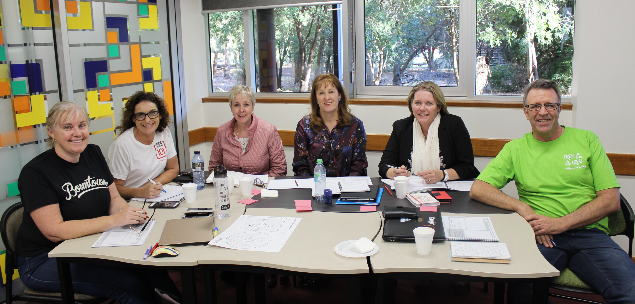Providing female startup founders in rural, regional and remote areas with access to face-to-face and virtual capacity-building opportunities, including mentorship, will help build Australia’s entrepreneurial muscle, according to Retha Wiesner, founder of WiRE.
Launched in early 2017 out of the University of Southern Queensland (USQ) – where Wiesner is Professor of HR Management –WiRE (Women in Rural, Regional, and Remote Enterprise) is a capacity-building program that supports regional, rural and remote (RRR) women to progress their business or community ventures.
“We help upskill RRR women in all areas of entrepreneurship through face-to-face and virtual training, networking, mentoring and workshopping activities and events,” Wiesner told Dynamic Business. “In practical terms, this involves a number of activities and events including: regional innovation pop-ups; an international/rural/urban connections forum; webinars; business growth boot camps, mentoring and peer learning digital hubs; online workshops; individualised coaching programs; and a scenario planning workshop with partners and key stakeholders. We have staff with mentoring experience and we’re bringing in external mentors too. We’ve interviewed 20 successful women entrepreneurs, some of whom will be joining WiRE.”
Wiesner recently took WiRE through CSIRO’s ON Prime, an entry-level, part-time pre-accelerator designed to help research teams and startups validate – and discover a real-world application for – their ideas. She also spent the two years leading up to WiRE’s launch, testing the need for the program. This involved workshopping the concept with strategic partner QRRRWN (Queensland Rural Regional and Remote Women’s Network), who is also providing WiRE with entities and women, throughout Queensland, to champion the program. It also involved conducting think tanks with successful women entrepreneurs as well as business women from rural areas to gauge the viability of the program. WiRE is funded by the Australian Government Department of Industry, Innovation, and Science through the Women in STEM and Entrepreneurship Programme.
“My motivation for founding WiRE was to help support RRR women entrepreneurs bring to life – or scale up – their dream ventures, businesses or initiatives in a way that works around the lives they want to live,” she said. “With rapid disruption changing the lives of all Australians, both rural and otherwise, we would like to help RRR women take their ideas to the market and not only become successful financially but become successful for the sake of their community.
“We chose to focus on women entrepreneurs running enterprises outside the traditional metropolitan areas as there is a huge opportunity in this space to boost Australia’s entrepreneurial capacity. 48% of new ventures in Australia are founded in rural, regional and remote areas, and yet only 2.4% of these are founded by women. That figure only marginally improves when looking at the whole of Australia, where only one in five startup founders are women.”
“Having already worked with over 300 women entrepreneurs in Queensland, my vision is now to take the WiRE Program Australia-wide and global to help enable social and economic outcomes in RRR areas to deal with changes coming over the next decade and beyond. My core passion is in helping women to empower themselves through entrepreneurial behaviour and innovation. I’d love to deliver that help to as many women as possible.”
Wiesner said research undertaken by WiRE identified a few key areas which are “major pain points” specifically for RRR entrepreneurial women.
“RRR women are frequently challenged by the lack of availability of assistance and mentoring throughout their startup journey,” she explained. “Operating in isolation can lead to a lack of confidence and is driven in-part by an absence of like-minded women with whom they can share their ideas as well as successful peers to model their journey on. There is absolutely a need to promote role-models to RRR women entrepreneurs, so throughout the program we’ll be showcasing the successes of rural women and connecting them with mentors, who can act as a sounding board.
“The limited availability of information and the high-costs associated with entering the market are obviously further early barriers, which are exacerbated by a higher concentration of technology and learning facilities in more densely populated areas. In terms of technology, it’s rally the physical access problem – not just access to internet but, as our research has shown, very difficult download times. Through USQ, we have access to ZOON. It’s similar to Skype but a lot more functional as it allows women to participate in our webinars or virtual workshops even if they don’t have access to reliable internet. They can ring in from their local landline and participate. Ultimately, lack of access to knowledge, support, technology and free time are all contributors to making RRR entrepreneurship difficult.”
Asked which industries RRR women entrepreneurs are active in, Wiesner said WiRE research showed there were three main ABS industry categories they gravitated towards – education and health (34.5%); agriculture, forestry and fishery (16.4%); and creative industries (12.7%).
Wiesner said that WiRE has received “tremendous feedback” from many RRR women entrepreneurs who’ve said the program has helped them with their business confidence and equipped them with the tools to progress their entrepreneurial journeys.
“It’s still early days because realistically the implementation stage of the program only commenced in April this year,” she said. “However, we have proof there is a significant need for the program; namely, by the end of October, more than 300 hundred women will have participated in the regional innovation pop-ups across the state, more than 100 women would have undergone the WiRE intensive business growth 19 hour Bootcamps, several hundred would have participated in the virtual webinars and workshops and almost 40 women would be close to completing an intensive 12 week idea/venture progression program with tangible outcomes. We are evaluating every stage of the program and we are confident that numerous WiRE participants will be in a position to showcase their venture progression achievements by the end of the year.”

